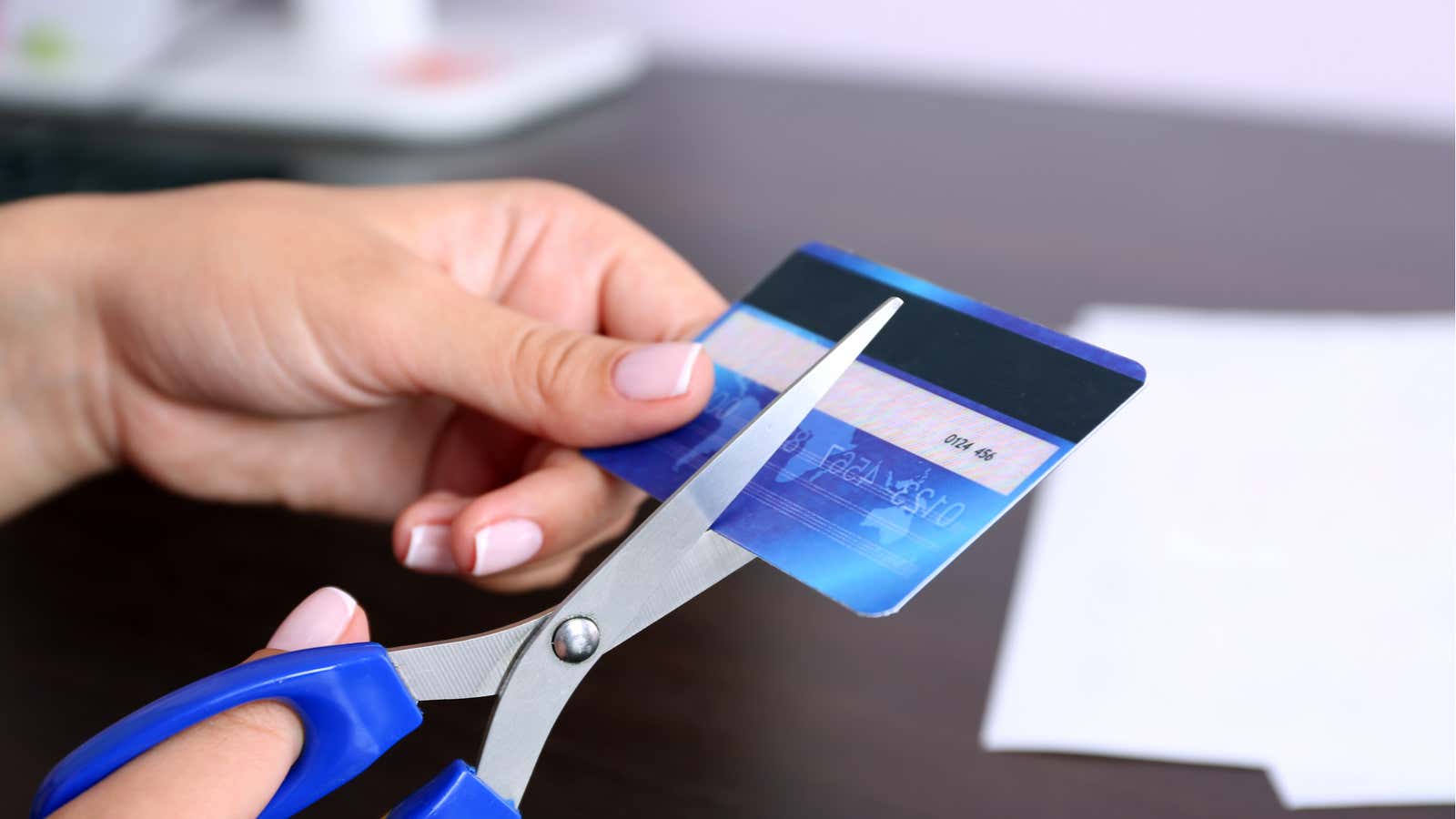How to Properly Close a Credit Card

It’s time to part … with your credit card. For one reason or another, you decided to get rid of everything in your wallet and make your life with cards easier.
Wondering how to close a credit card properly?
First, is it worth canceling the card at all.
When should you close (or not close) your credit card?
Think about these three questions before moving on to the credit card cancellation steps.
Is there an annual fee?
If you pay a commission on benefits you don’t use (such as the ability to earn premiums, insurance coverage, or free upgrades), there is probably no compelling reason to keep that credit card in rotation.
Does he have a high credit limit?
You don’t want to lower your credit score by closing your card, which will drastically lower your overall credit limit. This will ruin the utilization portion of your credit score. If you close your credit card but have balances on other cards, you will likely see your score drop 50 points. A high credit limit is not a reason not to close a card, but you should be strategic about it. More on this later.
Is this your oldest credit card?
This card, which you have held forever, increases your credit score, increasing the overall duration of your credit history. If you close it, you will probably see your score drop, but probably by no more than 20 points.
How to close an unnecessary credit card
Pay off your balance
If you want to get rid of your card as soon as possible, but cannot pay off the entire balance at once, transfer the balance to a card that has a 0% balance transfer offer .
Get your rewards
If you have multiple cards that use the same redemption portal (for example, multiple chase cards or Capital One cards), you can skip this step. But keep in mind that you will probably only be able to redeem your points with the limitations of the remaining cards. Before closing the card, carefully check the rules of your card issuer.
Call your card issuer and ask to close the account.
We know this step sucks. You may be able to close your card online via chat, but chances are good that you will have to speak to the person with your voice. Check with the agent that your balance is zero.
If you have a high credit limit and don’t want your credit utilization rate to go down, ask if you can transfer your limit to another card. Of course, for this to work, you must have multiple cards from that issuer.
Wait for confirmation email
Your card issuer should send you an email confirming that your account is closed and has zero balance. If you don’t receive your card within a week or two, you can call your card issuer or send an email asking you to confirm your cancellation request.
Keep your cancellation confirmation for several years, just in case you need to refer to it.
Cut your card
You did it! (Note: If your card is metal, don’t cut it! We’ve got a message on how to properly dispose of them .)
Check your credit report
It can take up to 45 days for credit bureaus to report that a card has been closed, which means it can take you almost two months to see any change in your rating.
That’s all! Congratulations: you survived. Closing credit cards is not something you should plan to do on a regular basis, but if your situation requires closure, you can repeat these steps as needed.
This post was originally published in 2018 and was updated in February 2020 to provide more information.